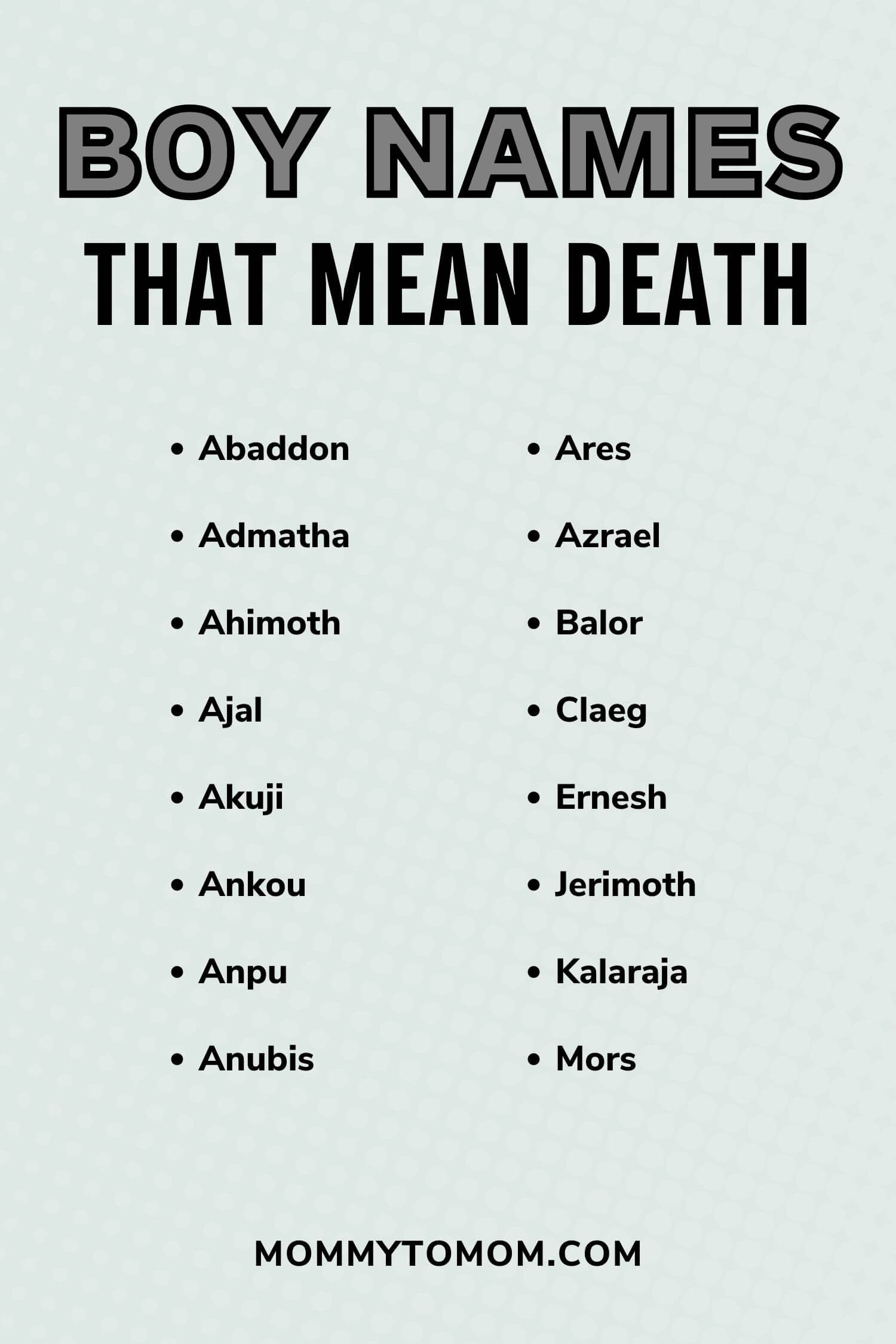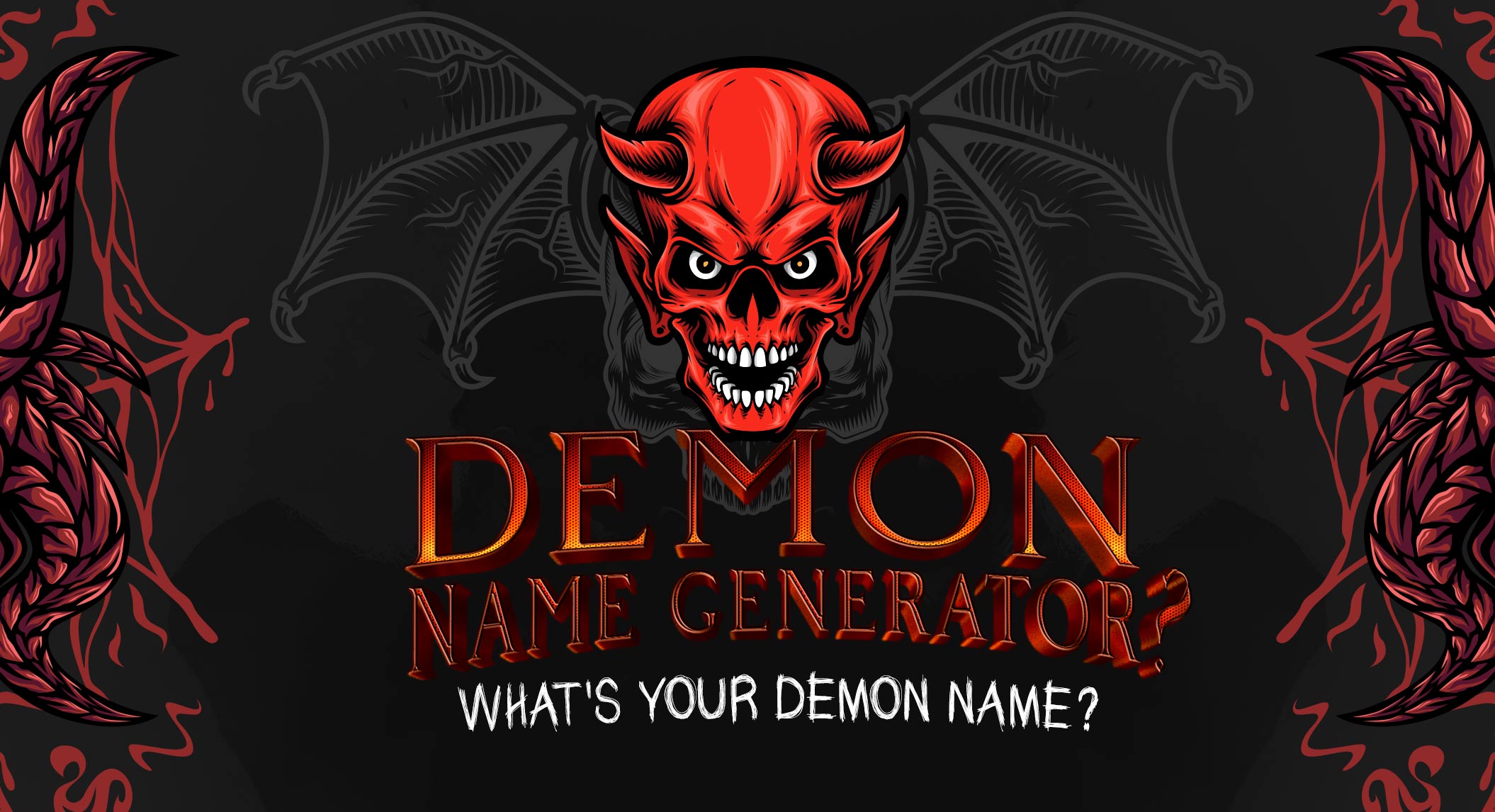Exploring The Shadows: Names That Mean Death
Names have always carried deep meanings, often reflecting cultural significance, familial heritage, or even personal beliefs. Among the myriad of names, some evoke a more somber connotation, representing themes of death or the afterlife. This exploration into the realm of names that mean death uncovers not just the meanings behind these names, but also the stories and histories that accompany them. As we delve into this topic, we aim to understand why certain cultures associate specific names with mortality and how these names resonate within various societies.
Throughout history, names have been seen as powerful symbols, often believed to hold influence over the bearer's destiny. In many cultures, names that signify death can be found in mythologies, literature, and even in the realms of contemporary culture. These names may evoke fear or respect, reminding us of the inevitability of death as a natural part of life. By examining the origins and implications of these names, we gain insight into the cultural attitudes towards mortality and the ways in which societies cope with the concept of death.
As we embark on this journey to uncover the meanings behind names that signify death, we will also look into notable figures who bear these names, their legacies, and how they have impacted society. Understanding what name means death not only enriches our knowledge of language and culture but also prompts us to reflect on our perceptions of life and death.
What Are Some Common Names That Mean Death?
Names that signify death often come from various cultures and languages. Here are a few examples:
- Malik: This name is of Arabic origin and can mean "king" but is also associated with the angel of death, Azrael.
- Thanatos: In Greek mythology, Thanatos is the personification of death, making this name synonymous with mortality.
- Devon: This name has Celtic roots and can mean "defender," but it is also associated with the idea of death in some contexts.
- Mortimer: A name of English origin meaning "dead sea," it has clear associations with death.
Is There a Connection Between Culture and Names That Mean Death?
Indeed, there is a profound connection between culture and the names that signify death. Many cultures view death through different lenses, which influences how names are chosen. For example:
- In some cultures, names associated with death are given to honor ancestors or to invoke protection against evil spirits.
- In others, these names may serve as a reminder of the fragility of life, reflecting a more contemplative attitude towards mortality.
How Do Different Cultures Interpret Death-Related Names?
Different cultures interpret death-related names based on their beliefs and traditions. For instance:
- In some Indigenous cultures, names that translate to "death" are seen as a part of the cycle of life, emphasizing the natural order of existence.
- In many African cultures, names that mean death are often used in rituals to ensure safe passage to the afterlife.
What Name Means Death in Literature and Mythology?
Throughout literature and mythology, various characters embody the meaning of death. For instance:
- Hades: In Greek mythology, Hades is the god of the underworld and is often associated with death.
- Yama: In Hindu and Buddhist traditions, Yama is the god of death and is often depicted as a figure who guides souls to the afterlife.
Who Are Some Notable Figures with Names Meaning Death?
Several notable figures throughout history and fiction carry names that mean death. Below is a brief overview of one such individual:
| Name | Background | Significance |
|---|---|---|
| Thanatos | Greek Mythology | Personification of death; often depicted as a winged spirit. |
How Have These Figures Shaped Our Understanding of Death?
Figures like Thanatos have shaped our understanding of death by personifying the concept, allowing cultures to explore the complexities of mortality through storytelling and mythology. Their stories often serve as allegories for the human condition, exploring themes of fear, acceptance, and the unknown.
What Name Means Death in Different Languages?
Names that mean death can be found in various languages, each carrying its unique cultural significance. Here are a few examples:
- Morte: Italian and Portuguese word for death; used in names like Morticia.
- Dies: Latin for day, but can also signify death in certain contexts.
How Can Names That Mean Death Affect Personal Identity?
Having a name that signifies death can influence personal identity in various ways. Some individuals may embrace the weight of their names, using them as a source of strength or as a reminder of the transient nature of life. Others may struggle with the connotations attached to their names, feeling burdened by the expectations that come with them.
Can Names That Mean Death Have Positive Connotations?
While it may seem counterintuitive, names that mean death can indeed have positive connotations. For many, these names symbolize rebirth, transformation, and the cyclical nature of life. They can serve as a reminder to cherish life and to live meaningfully.
In conclusion, exploring what name means death reveals a rich tapestry of cultural interpretations and personal experiences. Names associated with death can evoke a range of emotions and reflections, prompting us to confront our own beliefs about mortality. Whether viewed with reverence or fear, these names remind us of the profound connection between life and death, shaping our understanding of existence in the process.
Unveiling The Life Of Carol Davis: Mark Davis' Wife
Idris Elba: The Multifaceted Musician Beyond The Screen
Exploring The Lives Of Larry Bird's Children



ncG1vNJzZmiqn5i4o77InZ6emqKqtq%2B%2FjaipoGeYmq6twMecmKudkZiwpr%2FSpaCmoaSasXDDx5qrZqaRorJuucSapaxllJqutbSNoaumpA%3D%3D
